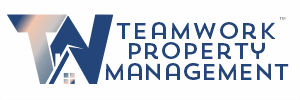The Crucial Role of Continuing Education for Property Managers and the Value of Trade Organizations
As the real estate industry evolves and adapts to changing market dynamics, the role of property managers becomes increasingly complex and multifaceted. To navigate this dynamic landscape effectively, property managers must prioritize continuing education and professional development. In this blog post, we’ll explore the importance of continuing education for property managers and the invaluable role played by trade organizations in supporting their growth and success.
- Staying Updated with Industry Trends: Continuing education enables property managers to stay abreast of the latest industry trends, best practices, and regulatory changes. From new technologies and innovative property management strategies to evolving legal requirements and tenant expectations, the real estate landscape is constantly evolving. By investing in ongoing education, property managers can enhance their knowledge and skills, ensuring they remain competitive and effective in their roles.
- Improving Efficiency and Effectiveness: Continuing education empowers property managers to enhance their efficiency and effectiveness in managing properties. Training programs and workshops provide valuable insights into streamlining processes, implementing time-saving tools and technologies, and optimizing workflows. By adopting efficient management practices, property managers can increase productivity, reduce operational costs, and deliver superior service to property owners and tenants alike.
- Enhancing Tenant Satisfaction and Retention: Well-educated property managers are better equipped to meet the diverse needs and preferences of tenants, thereby improving tenant satisfaction and retention rates. Continuing education programs often include modules on customer service, communication skills, and conflict resolution—essential competencies for fostering positive landlord-tenant relationships. By cultivating a tenant-centric approach to property management, managers can create a supportive and welcoming living environment that encourages long-term tenant loyalty.
- Mitigating Risks and Liabilities: Property management is rife with potential risks and liabilities, from fair housing violations and lease disputes to property damage and safety hazards. Continuing education programs offer valuable insights into risk management strategies, legal compliance requirements, and proactive maintenance practices. Property managers who stay informed about relevant laws and regulations are better positioned to mitigate risks, prevent costly litigation, and safeguard the interests of property owners and tenants.
- Networking and Professional Development Opportunities: Trade organizations play a pivotal role in facilitating networking and professional development opportunities for property managers. These organizations often host industry conferences, seminars, and networking events where property managers can connect with peers, exchange ideas, and learn from industry experts. By participating in these forums, property managers can expand their professional networks, gain valuable insights from experienced professionals, and stay connected with the broader real estate community.
In conclusion, continuing education is essential for property managers to thrive in an increasingly complex and competitive industry landscape. By investing in ongoing learning and professional development, property managers can stay updated with industry trends, improve efficiency and effectiveness, enhance tenant satisfaction and retention, mitigate risks and liabilities, and access valuable networking opportunities. Additionally, trade organizations play a crucial role in supporting property managers’ growth and success by providing access to educational resources, networking opportunities, and advocacy efforts. By prioritizing continuing education and engaging with trade organizations, property managers can elevate their skills, advance their careers, and deliver exceptional results for property owners and tenants alike.
